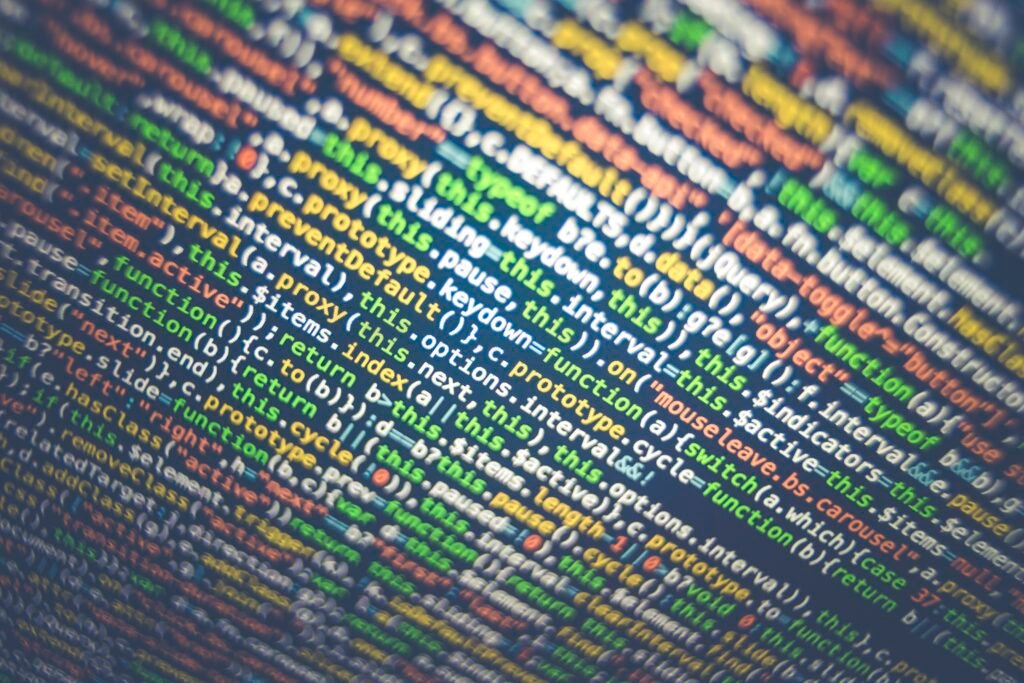Imagine a future where tasks that once seemed daunting become effortlessly manageable, where your daily routine is more streamlined and efficient than ever before. This is the power that artificial intelligence (AI) holds, promising to revolutionize our lives in countless ways. From simplifying household chores to transforming industries, AI has the potential to enhance our quality of life and push the boundaries of what we thought possible. In this article, we’ll explore the incredible ways that artificial intelligence can assist us and how it’s already making a remarkable impact in various aspects of our existence. Get ready to be amazed by the possibilities that lie ahead!
Improving Healthcare
Diagnosis and Treatment
Artificial Intelligence (AI) is poised to revolutionize the field of healthcare by assisting with diagnosis and treatment. With AI systems capable of analyzing vast amounts of patient data, medical professionals can benefit from improved accuracy and efficiency in diagnosing illnesses. AI algorithms can quickly identify patterns and detect anomalies that might otherwise go unnoticed, leading to earlier diagnosis and better treatment outcomes. Furthermore, AI-powered image recognition can assist in diagnosing conditions such as cancer, enhancing the speed and accuracy of diagnosis.
Remote Monitoring and Care
Another area where AI can make a significant impact is in remote monitoring and care. AI-powered devices can remotely collect patient data, continuously monitoring vital signs and health indicators. This ability allows healthcare providers to track patients’ conditions in real-time, enabling early intervention and preventing serious health complications. AI can also provide personalized care plans and offer recommendations to patients based on real-time data analysis, promoting patient engagement and well-being.
Predictive Analytics
AI’s ability to process and analyze vast amounts of data can play a crucial role in predictive analytics for healthcare. By analyzing historical patient records and trends, AI algorithms can identify individuals at high risk for specific diseases or adverse events. This information allows healthcare professionals to develop targeted prevention strategies and allocate resources effectively. AI can also assist in predicting treatment response and potential complications, informing personalized treatment plans and improving patient outcomes.
Enhancing Business Operations
Automating Repetitive Tasks
AI technologies can reduce the burden of repetitive tasks in various business operations. By automating routine and mundane processes, employees can focus on more complex and value-added tasks. For example, AI-powered chatbots can handle customer inquiries and provide instant support, improving response times and customer satisfaction. Moreover, AI can automate data entry, data analysis, and report generation, saving time and reducing human errors.
Improving Customer Service
AI’s ability to analyze large amounts of customer data can enable businesses to enhance customer service experiences. AI-powered systems can analyze customer behavior patterns, preferences, and feedback to provide personalized recommendations and assistance. This personalization can range from targeted marketing messages to customized product recommendations, improving customer satisfaction and retention. Additionally, AI can automate customer support processes, providing faster response times and 24/7 availability.
Streamlining Supply Chain Management
AI has the potential to revolutionize supply chain management by streamlining operations and optimizing processes. By analyzing historical data and real-time information, AI algorithms can predict demand, optimize inventory levels, and improve logistics planning and route optimization. This predictive capability can lead to reduced costs, improved efficiency, and better customer service. AI can also identify potential bottlenecks and risks in the supply chain, allowing businesses to proactively address issues and ensure smooth operations.
Revolutionizing Transportation

Autonomous Vehicles
One of the most significant potential impacts of AI in transportation comes from autonomous vehicles. AI-powered self-driving cars and trucks have the potential to revolutionize the way we travel and transport goods. These vehicles rely on AI algorithms to perceive their environment, make decisions, and navigate safely. With the ability to analyze vast amounts of data in real-time, autonomous vehicles can improve road safety, reduce congestion, and enhance overall transportation efficiency.
Efficient Traffic Management
AI can also enhance traffic management systems, making urban mobility more efficient. By analyzing traffic patterns and real-time data from various sources, AI algorithms can optimize traffic signal timings, reduce congestion, and improve traffic flow. AI can also assist in predicting traffic conditions, allowing drivers to make informed decisions and choose the most efficient routes. Additionally, AI can enable intelligent transportation systems that prioritize public transportation, emergency vehicles, and pedestrian safety.
Smart Infrastructure
AI-powered smart infrastructure can transform cities into more sustainable and interconnected ecosystems. By integrating AI-enabled sensors, cameras, and data analytics, cities can proactively monitor and manage various aspects of urban life. This includes optimizing energy consumption, managing waste collection more efficiently, and improving public safety. AI can also play a crucial role in managing public transportation systems, predicting maintenance needs, and providing real-time information to commuters, making cities more livable and sustainable.
Boosting Education
Personalized Learning Paths
AI can personalize education by creating tailored learning paths for students. By analyzing large amounts of data on individual students’ strengths, weaknesses, and learning styles, AI algorithms can provide personalized content, exercises, and assessments. This adaptive learning approach ensures that students receive the most relevant and engaging educational materials, enabling better retention and deeper understanding of the subject matter.
Enhanced Student Engagement
AI technologies can enhance student engagement by providing interactive and immersive learning experiences. Virtual reality (VR) and augmented reality (AR) applications powered by AI algorithms can transport students to different environments and facilitate experiential learning. This approach can make complex concepts more tangible and engaging, fostering curiosity and deeper understanding. AI can also enable intelligent tutoring systems that provide real-time feedback and adaptive guidance, promoting active learning and individual progress.
Intelligent Tutoring Systems
Intelligent tutoring systems powered by AI can provide personalized guidance and support to students. By analyzing individual students’ performance and learning data, AI algorithms can identify areas where students struggle and offer tailored explanations, examples, and practice exercises. This one-on-one tutoring experience can supplement traditional teaching methods, ensuring that students receive personalized support and empowering them to excel academically.
Transforming Agriculture

Precision Farming
AI can revolutionize agriculture by enabling precision farming techniques. By combining AI algorithms with data from drones, sensors, and satellites, farmers can monitor and manage crops at a level of detail that was previously unimaginable. AI-powered systems can provide insights into soil conditions, nutrient levels, and water requirements, allowing farmers to optimize resource allocation and improve crop yields. This precision farming approach can also minimize the use of pesticides and fertilizers, making agriculture more sustainable.
Crop and Soil Monitoring
AI-powered systems can continuously monitor crop health and soil conditions, facilitating early detection of diseases, nutrient deficiencies, and other issues. By analyzing data from drones, sensors, and satellites, AI algorithms can identify subtle changes in plant health and soil characteristics. This early detection enables farmers to take preventive measures, such as targeted interventions or adjustments in irrigation and nutrient management, preventing crop losses and ensuring optimal growing conditions.
Automated Harvesting
AI can automate the harvest process, reducing labor costs and increasing efficiency in agriculture. AI-powered robots equipped with computer vision and machine learning algorithms can identify ripe fruits or vegetables, pick them with precision, and follow specific harvesting techniques. This automation eliminates the need for manual labor-intensive tasks, ensuring timely harvesting while maintaining product quality. Additionally, AI can optimize harvesting schedules based on weather conditions and market demand, reducing waste and improving profitability.
Advancing Research and Development
Drug Discovery
AI has the potential to revolutionize the process of drug discovery and development. By leveraging AI algorithms and machine learning, researchers can expedite the identification of potential drug candidates and predict their efficacy and safety. AI can analyze massive amounts of data, including genetic information, molecular structures, and existing drug databases, to identify promising drug targets and optimize drug design. This AI-enabled drug discovery process can significantly reduce costs, accelerate timelines, and improve success rates in the development of new medicines.
Data Analysis and Simulation
AI’s ability to process and analyze vast amounts of data can have a transformative impact on research and development efforts. By applying AI algorithms, scientists can analyze complex datasets, extract meaningful insights, and identify patterns that might go unnoticed by traditional methods. This data analysis capability can improve understanding in various fields, from genetics and genomics to climate modeling and particle physics. AI can also facilitate simulations and modeling, enabling researchers to explore complex scenarios and make predictions that drive scientific advancements.
Robotics
AI-powered robotics can enhance research and development activities across multiple disciplines. Advanced robots equipped with AI algorithms can perform complex tasks, such as laboratory experiments, data collection, and sample analysis, with high accuracy and speed. These robots can handle repetitive and precise tasks, freeing up researchers’ time for more creative and strategic work. AI-powered robots can also navigate challenging environments, such as disaster zones or outer space, enabling scientific exploration and data collection in areas previously inaccessible to humans.
Improving Cybersecurity

Threat Detection and Prevention
AI can strengthen cybersecurity measures by enhancing threat detection and prevention capabilities. AI algorithms can analyze large volumes of data and identify patterns associated with cyber threats and attacks. By continuously monitoring network traffic, user behavior, and system vulnerabilities, AI-powered systems can detect anomalies and identify potential security breaches in real-time. This proactive approach enables prompt response and mitigation, protecting organizations from cyber attacks and minimizing the potential damage.
Pattern Recognition for Malware
AI can assist in the identification and classification of malware, bolstering cybersecurity defenses. By analyzing patterns and characteristics of known malware, AI algorithms can identify new strains and variants, even if they have evaded traditional signature-based detection methods. This pattern recognition capability enables faster detection and response to emerging threats, reducing the risk of malware infections and data breaches. Additionally, AI can continually learn and adapt to new malware patterns, making it a valuable tool in the ever-evolving landscape of cybersecurity.
Fraud Detection
AI technologies can play a crucial role in combating fraud across various industries and sectors. By analyzing large-scale data sets and applying machine learning algorithms, AI systems can identify suspicious patterns and behaviors indicative of fraudulent activities. This proactive approach enables organizations to detect and prevent fraud in real-time, minimizing financial losses and reputational damage. AI-powered systems can also continuously learn and evolve based on new fraud patterns, staying one step ahead of fraudsters.
Supporting Environment Conservation
Wildlife Monitoring
AI can aid in wildlife conservation efforts by facilitating automated monitoring and analysis of animal behavior and habitats. By analyzing data from remote sensors, cameras, and satellite imagery, AI algorithms can identify and track endangered species, monitor their population trends, and detect potential threats to their habitats. This information enables conservationists to make informed decisions and develop targeted conservation strategies, ensuring the long-term survival of wildlife species.
Predicting Natural Disasters
AI’s ability to analyze vast amounts of data in real-time can improve the prediction and mitigation of natural disasters. By analyzing historical data, weather patterns, and environmental factors, AI algorithms can identify early warning signs of impending disasters, such as hurricanes, floods, or earthquakes. This predictive capability enables authorities to issue timely warnings, evacuate at-risk areas, and allocate resources efficiently for disaster preparedness and response. AI can also assist in post-disaster recovery efforts, helping communities rebuild and reduce vulnerability to future events.
Climate Change Mitigation
AI can support efforts to mitigate the effects of climate change by providing valuable insights and predictive capabilities. By analyzing climate data, satellite imagery, and models, AI algorithms can identify patterns and trends, helping scientists understand the complex dynamics of climate change. AI can also assist in optimizing energy consumption and resource allocation, enabling more sustainable practices and reducing carbon footprints. Additionally, AI-powered systems can help in predicting the impact of climate change on specific regions, industries, and ecosystems, guiding policymakers in developing effective strategies for adaptation and mitigation.
Enhancing Personalized Assistance
Virtual Assistants
AI-powered virtual assistants have become ubiquitous, providing personalized assistance in various aspects of our daily lives. Virtual assistants, such as Amazon’s Alexa or Apple’s Siri, use voice recognition and natural language processing to understand and respond to user queries and commands. These assistants can provide information, perform tasks, and control connected devices, enhancing convenience and efficiency in our interactions with technology.
Voice Recognition
AI’s advancements in voice recognition technology have made voice interfaces more accurate and reliable. Voice recognition enables hands-free interactions with devices, making them accessible to individuals with disabilities or mobility impairments. Additionally, voice recognition can facilitate voice-to-text transcription, making it easier to capture and document spoken information. This technology has enormous potential in improving accessibility and inclusivity across various domains, from communication to information retrieval.
Smart Home Devices
AI-powered smart home devices have made it possible to automate and control various aspects of our living spaces. From smart thermostats and lighting systems to security cameras and appliances, these devices can be controlled and monitored remotely using AI algorithms. This automation and remote control capability enhances convenience, energy efficiency, and home security. AI can also learn user preferences and habits, enabling personalized automation and adaptive behavior, making our homes more intuitive and responsive to our needs.
Promoting Accessibility
Assistive Technologies
AI technologies can significantly improve accessibility for individuals with disabilities. Assistive technologies powered by AI, such as prosthetics and exoskeletons, can restore mobility and independence to those with physical impairments. AI algorithms can interpret brain signals or muscle movements, allowing individuals to control prosthetic limbs or wearable exoskeletons with precision and dexterity. AI can also assist individuals with visual impairments by providing real-time object recognition, text-to-speech capabilities, and navigation guidance.
Visual and Auditory Enhancements
AI can enhance visual and auditory experiences for individuals with sensory impairments. By analyzing visual information and applying image recognition algorithms, AI-powered systems can provide audio descriptions of visual content, making it accessible to individuals with visual impairments. Similarly, AI algorithms can enhance auditory experiences by providing real-time captioning or visual representations of sound, enabling individuals with hearing impairments to enjoy audio content. These visual and auditory enhancements empower individuals with disabilities to access and enjoy various forms of media and content.
Language Translation
AI-powered language translation technologies have made cross-language communication more accessible than ever before. By leveraging machine learning algorithms and vast amounts of linguistic data, AI systems can provide accurate and real-time translation services. This capability enables individuals to overcome language barriers in various contexts, from travel and business to education and healthcare. AI-powered language translation promotes inclusivity and fosters cross-cultural understanding, opening up new opportunities for global collaboration and communication.






